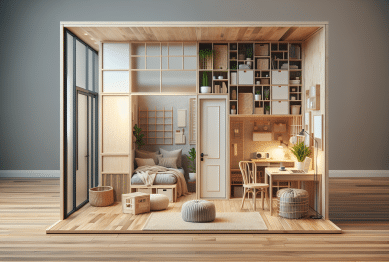Unlock the surprising power of everyday habits in this lifestyle and entertainment guide. Discover how subtle changes can spark creativity, improve well-being, and make each day richer. Explore proven strategies that fit any lifestyle and create meaningful, lasting impact.
Building Rituals for a More Fulfilling Day
Morning routines shape the trajectory of your entire day. The way a day begins often determines productivity, energy, and mood throughout. Creating a mindful ritual—even as simple as a quiet moment for gratitude or a nutritional breakfast—can support well-being. Research highlights how structured mornings reduce stress and bolster time management. This does not have to be complex. A habit like journaling morning thoughts or spending a few minutes stretching can ground intentions and start the day with purpose. Discovering a morning rhythm that fuels your spirit isn’t reserved for high-profile personalities; it’s accessible, personal, and transformative for anyone seeking a more intentional lifestyle.
Evening rituals play a similar but distinct role compared to morning routines. Winding down signals the brain to transition from alertness to restfulness, supporting overall sleep quality and next-day alertness. Small choices, such as reading instead of screen time or preparing for the next day, build into lasting patterns. Entertainment habits, like listening to calming music or indulging in a creative hobby, offer relaxation and reduce anxiety. Experts suggest that repeated behaviors at day’s end, practiced mindfully, can gradually re-train both mind and body to associate evening with renewal. In time, winding-down routines become acts of self-care, supporting resilience and refreshment.
Consistency is key. It’s tempting to try a dozen new habits at once, but research advises starting simple. Pick one or two key activities—maybe meditation or mindful tea-making—and practice daily for at least a month. The brain responds positively to routine. As old habits fade and new ones form, daily life starts to shift. Enjoy exploring adjustments that fit with personal interests and schedules. Over weeks, the collective impact become noticeable—increased energy, improved mood, and more fulfilling interactions. Building rituals isn’t about perfection; it’s about small steps leading to meaningful shifts.
Decluttering Your Space and Mind
Decluttering goes beyond cleaning. Physical space influences mental clarity and emotional well-being. Studies from organizations like the National Institute of Mental Health confirm that crowded environments can increase stress and reduce productivity. The act of clearing physical clutter—a bedside table, a refrigerator—removes distractions, reduces anxiety, and makes room for new ideas. Minimalism, or simply owning less, is less about deprivation and more about prioritizing joy and usefulness. Sorting belongings in small, manageable steps can bring a sense of control and fresh energy to living spaces. The process often sparks renewed focus, enabling a creative mindset to flourish.
Mental clutter is equally important. Many people carry growing lists of worries, digital notifications, and mental tasks that crowd out peace and productivity. Mindfulness practices and simple lists can help manage these pressures. For some, writing down thoughts before bed or first thing in the morning acts as a mental reset. For others, scheduling time to review and prioritize tasks early in the week helps reduce overwhelm. Digital decluttering—organizing files, unsubscribing from emails, limiting phone notifications—also plays a significant role in maintaining mental space and emotional stability. Gradual shifts like these support a more focused, energized mind.
Benefits of decluttering stretch far beyond aesthetics. Research links cleaner spaces with restful sleep, better focus, and improved relationships. Letting go of seldom-used possessions or outdated commitments can lighten emotional burdens and allow for more genuine leisure. Over time, these efforts create space for what matters most—meaningful moments with friends, creative hobbies, or restful solitude. The journey toward a calm space and mind looks different for everyone, but each effort, big or small, contributes to lasting transformation and a more joyful approach to each day.
Creativity Boosts Through Everyday Activities
Creativity isn’t exclusive to artists or musicians—it thrives in everyday life. Everyday routines, from preparing meals to organizing schedules, can become creative outlets. The secret lies in mindful experimentation: a willingness to try new recipes, arrange furniture differently, or learn a new song. Studies from the American Psychological Association show that creativity improves problem-solving skills and emotional resilience. By integrating small moments of imagination—like doodling during a phone call or brainstorming alternate routes for errands—individuals find renewed engagement and joy in tasks that might otherwise feel mundane or repetitive.
Entertainment habits deeply influence creative thinking. Engaging in diverse entertainment—from reading genres outside a comfort zone to exploring documentaries on fascinating topics—expands perspective. Music, in particular, has been linked to increased creativity and motivation when working or relaxing. Podcasts and audiobooks provide new concepts and storytelling techniques, offering fresh material to inspire other pursuits. Allowing unstructured playtime, even as adults, creates opportunities for unexpected insight and problem-solving, which can then ripple into professional or personal realms. The result is a richer, more adaptable approach to everyday challenges.
Social connection plays a pivotal role. Sharing hobbies or creative exercises with friends, family, or online communities introduces accountability and new inspiration. Group activities—such as collaborative writing prompts, virtual art classes, or board game nights—invite fresh ideas and boost motivation. Creativity thrives in environments where experimentation is encouraged and mistakes are viewed as learning. As confidence grows, individuals develop unique styles and approaches that make life more interesting. Over time, creativity becomes a core element of both relaxation and productivity, shaping a fuller, happier lifestyle.
Mindful Technology Consumption in Daily Life
Technology is woven into every corner of life, but its influence can be both helpful and overwhelming. Studies by organizations such as the Pew Research Center reveal the dual nature of technology — facilitating learning and connection but also contributing to digital fatigue. Setting clear boundaries is essential. A habit as simple as designating screen-free meals or having device cut-off times in the evening can dramatically improve sleep and reduce stress. When used intentionally, technology acts as a valuable tool rather than a distraction, supporting well-being instead of draining attention.
Curating feeds and subscriptions also plays an influential role. Following accounts and channels that inspire rather than compare helps maintain a positive digital atmosphere. Unsubscribing from unhelpful notifications and muting negative language or spam clears digital ‘noise’. Additionally, leveraging apps designed to track habits, reduce blue light, or provide calming content helps build healthier patterns. Over time, such mindful usage strengthens focus and emotional balance, making technology a source of energy rather than exhaustion.
Tech-free activities are just as crucial. Researchers at Stanford University highlight that periodic breaks from screens boost creativity, concentration, and interaction with the real world. Enjoy outdoor walks, hands-on hobbies, or face-to-face conversations without devices. Creating these pauses allows the brain to process, reflect, and spark new thoughts. A dynamic lifestyle emerges—not one rejecting technology, but balancing its gifts with moments of quiet and genuine interaction. This approach offers a path to maintaining digital well-being amidst a fast-paced, tech-driven world.
Entertainment Choices That Support Well-Being
Leisure activities shape lifestyle and health in subtle but powerful ways. Entertainment isn’t just an escape—it nourishes emotional health, creates new experiences, and forges stronger connections. Activities such as movie marathons, live performances, arts and crafts, or group trivia nights offer more than fun; they provide structured downtime. Researchers at Harvard Health emphasize the importance of hobbies in stress relief and cognitive stimulation. Engaging with uplifting, diverse entertainment reduces anxiety, boosts confidence, and supports lasting positive memories with loved ones.
It’s crucial to recognize that quantity and quality matter. Too much passive entertainment, like endless scrolling or binge-watching, can contribute to lethargy or social isolation. Instead, choosing balance—like mixing active dance sessions with quiet reading, or outdoor concerts with home movie nights—creates a fulfilling entertainment diet. Making time for personal interests or exploring new genres invites ongoing learning and reduces boredom. Simple planning, such as dedicating one evening a week to a social game or cooking challenge, adds anticipation and structure to leisure time.
Entertainment also nurtures community and belonging. Shared activities—attending events with friends, joining local clubs, or participating in virtual game nights—create opportunities for connection. Studies show that laughter and positive social interaction raise dopamine levels and can even strengthen immune function. Whether solo or shared, intentional entertainment choices enhance mood, foster resilience, and bring a sense of joy and connection into the everyday. Over time, these habits inspire a healthier, more harmonious lifestyle, benefiting both mind and spirit.
Designing a Personal Blueprint for Everyday Joy
Combining mindful rituals, manageable organization, and creative exploration offers a pathway toward lasting everyday satisfaction. By experimenting with tailored habits and consistently evaluating what brings joy or drains energy, individuals cultivate lifestyles that reflect personal values and goals. Regular reflection—whether through journaling, conversations, or meditation—uncovers what truly matters and which habits are most life-enhancing. The process is ongoing, adaptable, and deeply rewarding.
Building a lifestyle blueprint is unique for every person. Some thrive on solitude and quiet hobbies, while others seek stimulation from lively environments and social interactions. The key is remaining curious and flexible. Periodically revisiting and adjusting routines prevents stagnation and ensures that life stays vibrant and meaningful. Experts agree that long-term fulfillment is shaped by a willingness to try new approaches, let go of outdated routines, and focus on present-moment enjoyment as much as on long-term ambitions.
Above all, joy follows attention. Noticing small pleasures—a favorite song, a delicious meal, a meaningful conversation—turns the everyday into something memorable. The journey toward a joyful, well-rounded life isn’t about perfection or rigid formulas—it’s about integrating small, proven habits that nurture health, happiness, and a strong sense of self. Embrace the process. Let curiosity guide the next step, and let everyday life become its own best form of entertainment.
References
1. American Psychological Association. (n.d.). Creativity. Retrieved from https://www.apa.org/topics/creativity
2. National Institute of Mental Health. (n.d.). Caring for Your Mental Health. Retrieved from https://www.nimh.nih.gov/health/topics/caring-for-your-mental-health
3. Pew Research Center. (n.d.). The Impact of Digital Technology on Well-being. Retrieved from https://www.pewresearch.org/internet/2018/05/17/the-impacts-of-digital-life
4. Harvard Health Publishing. (n.d.). The Health Benefits of Hobbies. Retrieved from https://www.health.harvard.edu/blog/health-benefits-of-hobbies-2018041913655
5. Stanford University. (n.d.). The Science of Taking Breaks. Retrieved from https://scopeblog.stanford.edu/2020/12/14/the-science-of-breaks-and-why-you-should-take-them/
6. Mindful.org. (n.d.). How Rituals Improve Well-being. Retrieved from https://www.mindful.org/why-rituals-matter









